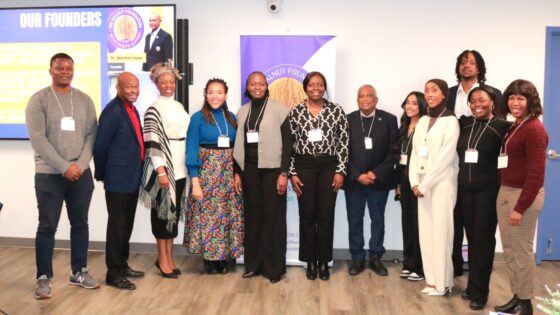on
BY STEVEN KASZAB
More than 600 LGBTQ-identifying people have been killed in acts of violence in the USA and Puerto Rico since October 12th, 1998. A gallop poll estimates that 4.1% of 10 million Americans are identified as LGBTQ, while America’s Federal Data listed sexual orientation as a factor in only one reported hate crime in 2016.
67 violent deaths of LGBTQ people in the same year happened. 28 of these were victims in the Pulse Nightclub shooting alone. These numbers suggest that the real number of LGBTQ victims remains hidden by our government agencies, hoping to deny that LGBTQ citizens are victims of hate crimes in America, trying to blame other reasons for the violence.
Transgender and gender non-conforming people are in danger globally.
- Joe Rose (Gay Canadian beaten and stabbed to death on a bus in Montreal)
- Ukea Davis (18) Transgender shot to death
- Stephanie Thomas (19) Transgender shot to death
- Felicia Moreno (25) Transgender shot to death
- Michael Scott Goucher (21) Gay stabbed 45 times
- Rosa Avina (27) Lesbian burnt to death
- Muhadh /ishmael (17) Kenyan beaten to death
- Frank Yazzie (Gay Navajo) cut in half and stuffed into two bags
- Zella Ziona (21) trans woman of colour shot to death
- Amancay Diana Sacayan Argentians Trans woman murdered
- Amber Munroe (20) Transgender woman murdered
- Shira Banki (16) Israeli stabbed to death
- Francela Mendez (29) El Salvadoran murdered by group of men
- Cameron Langrell (teenager) took her own life after being bullied at school
- Jennifer Laude (26) Philippine Trans woman murdered by a man she just met at a disco
- Thembelihie Sokhela (28) Soth African Lesbian suffocated to death after being raped
- Paulo Henrique Alves (47) Brazilian Gay man burned alive on side of road
- Pedro Araujo (52) Brazilian man murdered because he was Gay
- Delon Melville (26) Guyanese man murdered because he showed “effeminate behaviour”
Kenya (2013) 103 men, women and trans people were murdered in mass killings by enemies who felt their behaviour was disrespectful to their families. The stats excluded killers that killed romantic partners or former romantic partners.
Law enforcement professionals are out of their league, unable or unwilling to understand, protect and be a part of the greater LGBTQ Community. While law enforcement should be dedicated to protecting our most vulnerable communities, and the LGBTQ community is one of these, the Justice Department does not take hate crimes seriously enough. Law enforcement officers and officials do not empathize with, understand nor sympathize with this community. The huge and uncertain death toll is in part due to a violent backlash against social progressions like same sex marriages and expanded acceptance of the LGBTQ Communities influence and success.
Anti-discrimination laws born from civil rights movement have shined the light of justice upon ugly racial discrimination. Such laws need to do the same thing for the LGBTQ and other communities.
Nations in the Caribbean, Africa and elsewhere need to repeal any bans on gay sex, like Trinidad and Tobago did in 2018. There are nations that still have laws where sex between two consenting adults of the same sex can be punishable by 25 years in prison, black balling a person because of his sexuality. While many of these laws are not enforced they still have a chilling oppressive effect upon our neighbours within the LGBTQ Community. Sodomy Laws Discrimination still holds many to account because of the influence and fear amplified by HIV/AIDS and prejudice.
In Antigua “buggery” is still punishable by 15 years in prison, or up to five years if committed by a minor. Barbados has laws that punish same sex relationships with ten years to life, one of the harshest in the Caribbean. These laws are still on the books. In Dominica anal sex is punishable by 10 years in prison. “Gross indecency” is what it is called.
In Japan many transgender people prefer to be labelled with a disorder like “gender identity disorder,” a person who would like to live and be accepted as a member of the opposite sex. “Simply, if a boy wants to wear a skirt, let him wear a shirt.” Japanese culture is often viewed as more accepting of gender explorations and expression. However, a strong “deprogramming” movement exists with Japanese and Asian society, very similar to what The LGBTQ community experiences in the west.
Being a member of the LGBTQ community is something to be proud of, and cannot be hidden in the closet, as it once was not so long ago. Societies moral judgmental laws are changing as our society evolves, and what was once oppressive, prejudicial and hateful is hopefully becoming a thing of the past. Members of the LGBTQ community tell each other they are loved, even though there still is a stigma attached to this love.
Only honesty, a love for personal freedom and global empathy can change our ways, diminishing the power that hate, fear and ignorance have upon us all.
Stay in the loop with exclusive news, stories, and insights—delivered straight to your inbox. No fluff, just real content that matters. Sign up today!













